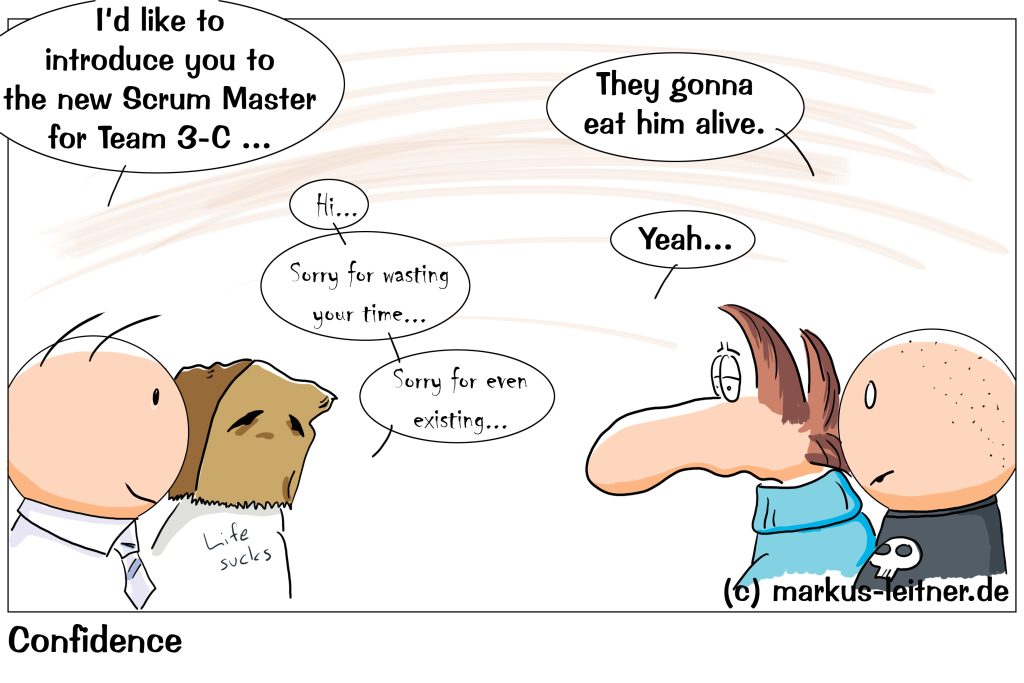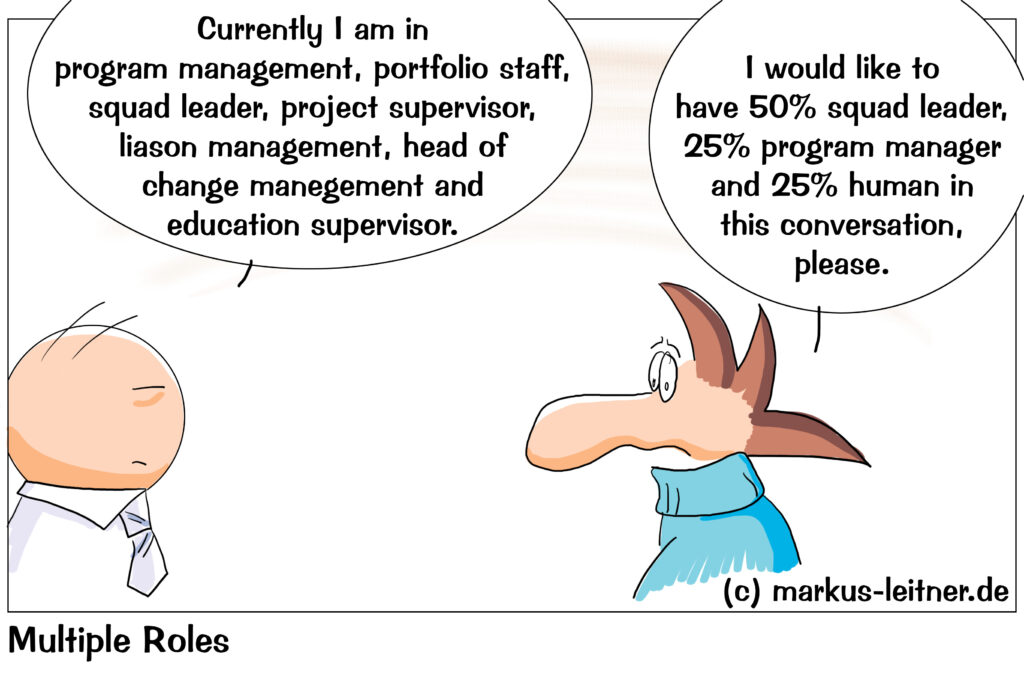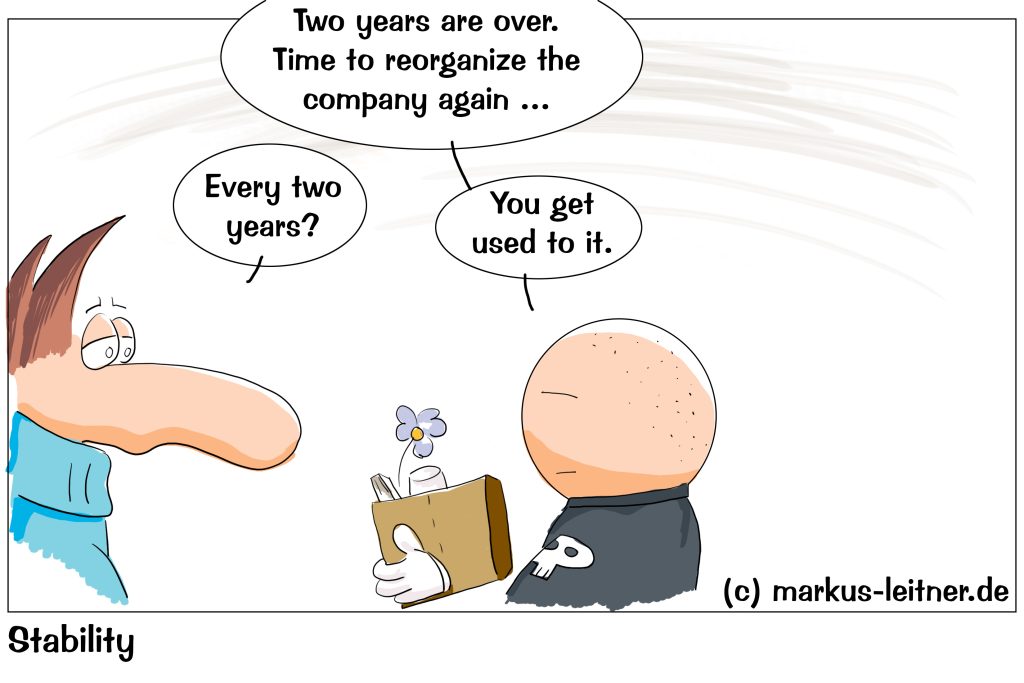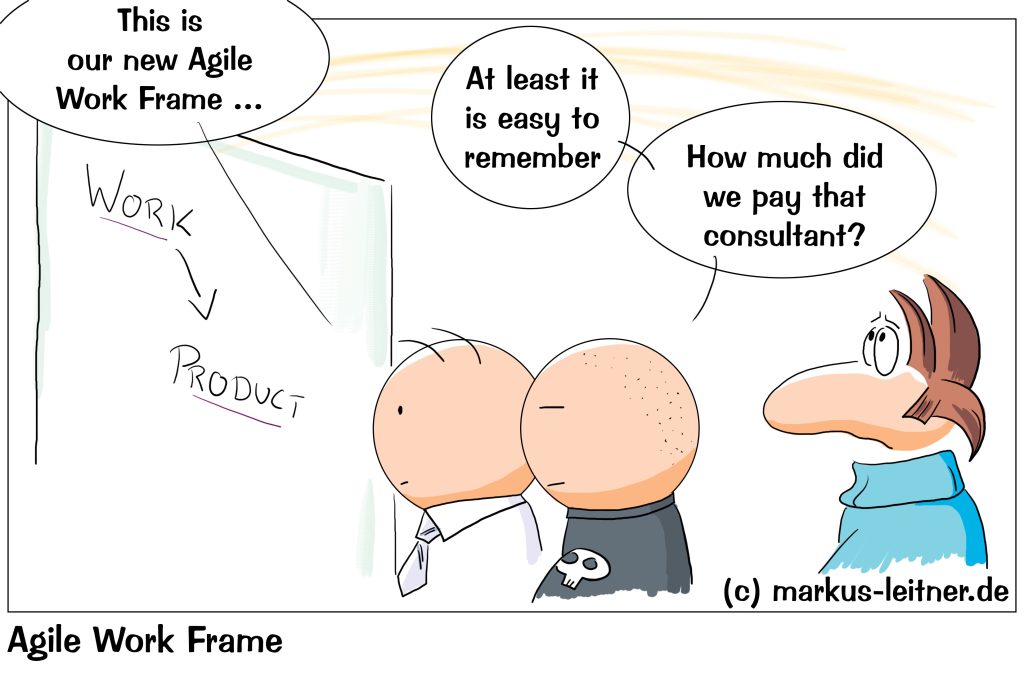
Scrum Master is not an apprenticeship and also not a degree. Therefore, every organization is free in its job description and advertisement. What is already difficult enough becomes even more difficult with the requirements: What does a Scrum Master actually have to bring with him?
I have been getting a lot of requests lately from companies looking for experienced Scrum Masters. These inquiries are generally accompanied by the client’s invitation to tender. It is noticeable that many are not so sure what they are actually looking for. Do not get me wrong: how would you know?
There is usually agreement that certification is desirable. I can understand that well, because ultimately you need some kind of indicator that can be used to prove the professionalism. Level of knowledge and so on, because – as I said – there are no suitable courses.
For my part, I studied electrical engineering for a few semesters, dropped out and then trained as a typesetter. Career paths can be very different.
However, I strongly advise you not to rely on certification alone.
Why not?
The path to the certificate usually looks like this: attending a two-day seminar and then taking an online test a few days later. If you pass this, you will receive your certificate.
Many years ago, when I got my Scrum Master certification (which has been followed by other certifications), I was not really able to lead a team. At that time I was still employed, my colleagues were just as inexperienced as I was, and we worked on many things together, learning from each other and learning from our own experiences. That may sound exactly like what you were looking at in an agile world, but believe me when I say that this was a very rocky path, and an experienced Scrum Master would have helped my team much better and we would have been looking at a different timeframe.
The problem is that such training can only ever be theoretical. A good speaker always builds a bridge to practice, but we always have to think simplified and idealized in this training context. However, real life is usually different. Not everyone is always super motivated. Not everyone always agrees with us. We do not always get the support we want from everyone.
If I come fresh from the seminar as an inexperienced young Scrum Master and have to work in an environment where everything is not as it should ideally be, I will have the biggest problems.
So we can probably agree that a Scrum Master needs to have relevant or appropriate experience.
What does appropriate experience mean?
If I work in an environment where Agile and Scrum are new, then as a Scrum Master I should be the one that the others can learn from. However, if I am in a very mature environment, I can learn from my environment as a new Scrum Master, so in short: experienced team and inexperienced Scrum Master fit. The only combination we should avoid is pairing an inexperienced SM with an inexperienced team. That can also work, but the way there will be much longer and rockier.
The next point I would like to address is technical understanding. Personally, it is very easy for me to work in any IT or software environment, as I have also worked as a software developer myself. If I am supposed to moderate groups but do not have the slightest idea what my colleagues are talking about, I make it unnecessarily difficult for myself. For example, I cannot tell when we are going off topic (unless we suddenly start talking about football). It is difficult for me to judge whether we are speaking at the necessary depth (too shallow or too detailed for the current status).
I have found that I can support my teams much better if I understand the context. I do not even have to be really deeply involved in the expertise of my colleagues, but I should still get a good overview of the requirements of the product as well as the technology (i.e. the tools of my colleagues).
I do not have to bring these things with me. You can work that out, but you should not wait too long. As long as I do not have that knowledge and experience, I have to rely exclusively on my own toolbox (e.g. my moderation techniques). I will always need that – obviously, but knowing the context makes life a lot easier for both me and my colleagues.
As a desired characteristic of a Scrum Master, I would have to speak of experience in the relevant environment or the willingness to acquire both professional and technical knowledge.
You can have a different opinion, and I know quite a number of Scrum Masters who work very well and very successfully in a technical environment without any technical understanding. I claim that you then need other things to compensate for this, e.g. a lot of experience and a very large tool box of your own.
One setting is still important to me. I am not the Scrum Guide Police. My understanding of the job as a Scrum Master is not to make Scrum work. We do not get an award for the world’s best and most literal Scrum implementation. It is my job to make sure that the shop runs and that we live Agile principles because we expect something from it. I am a pragmatist.
An example: Scrum stipulates that the sole decision-making authority for the product lies with the product owner. But we find that in the rarest of cases. I could now insist that this has to be the case and go to war against the management (which I will very likely lose), or accept the situation as it is, work with it as best I can and work towards a change that will benefit the product, serves the customers and the organization.
In other words, pragmatism is a very welcome trait in a Scrum Master, which brings us to the soft skills, where it gets really difficult.
It is often read that a Scrum Master should resolve conflicts. This statement is misleading. An SM is not a mediator. That is a completely different kind of training, and psychologists are better suited for that. If we ask more closely, we often find that it is always a matter of the wording, but that there is always a bit of truth in it.
We will experience conflicts – within the team or across the board – and we have to deal with them somehow. Things rarely get better on their own. So if I do not dare to address and tackle such issues, I allow a negative influence to endure. To deal with conflict, I first need the ability to listen to the parties involved and give them the space to present their point of view.
So I have to be able to withdraw., be silent, let others do the talking if needed.
Very important. I give space for others to speak. These talks are then conducted very carefully in the direction of a possible compromise.
What is also desirable in a Scrum Master is the ability to take a step back (we do not always have to be the center of attention) and to listen without immediately jumping to the solution to the problem, instead leading the others step by step to this solution, giving our colleagues room and maybe leading from the back of the room.
Then a Scrum Master should be very communicative (without being an endless chatterbox).
What does that mean?
Many things can be done quickly and easily in a short personal conversation. But if I prefer to write emails, always communicate in writing, because I am shy and do not like approaching my colleagues, then many things will be much more complicated and take much longer than necessary. I do not have to waltz into everyone’s office unannounced. For example, I can ask by email when the person concerned has time for a chat, I have this or that topic and I have a question. Talking briefly would probably be a lot easier than playing ten rounds of mail ping-pong. Most of our colleagues have no problem with that.
And finally: think outside the box.
The Scrum rules are learned quickly – it is not that terribly much. I get really good at my job when I can bring something with me from many different areas. So it cannot hurt to be familiar with classic project management methods, because that way you better understand the difficulties of those you work with outside of the team. You can also get good ideas there.
Knowledge of sociology and work psychology? Great. Bring it on.
Knowledge of employment law? You should know a few basic things.
So my advice is to broaden your horizons around Scrum. With just what the Scrum Guide says, I am going to be a crappy Scrum Master. Moderation, organization, management, psychology, sociology – and much more.
Bring it on, learn whatever you can learn and make experiences outside of Scrum.
Core: The Scrum Master role requires far more knowledge and skills than just memorizing the Scrum Guide. For inexperienced teams, one should recruit an experienced SM, while junior Scrum Masters can learn from mature organizations. A broad knowledge of »related« topics (e.g. work psychology) is extremely helpful.
If you need any assistance or want to know more, just speak to me.











